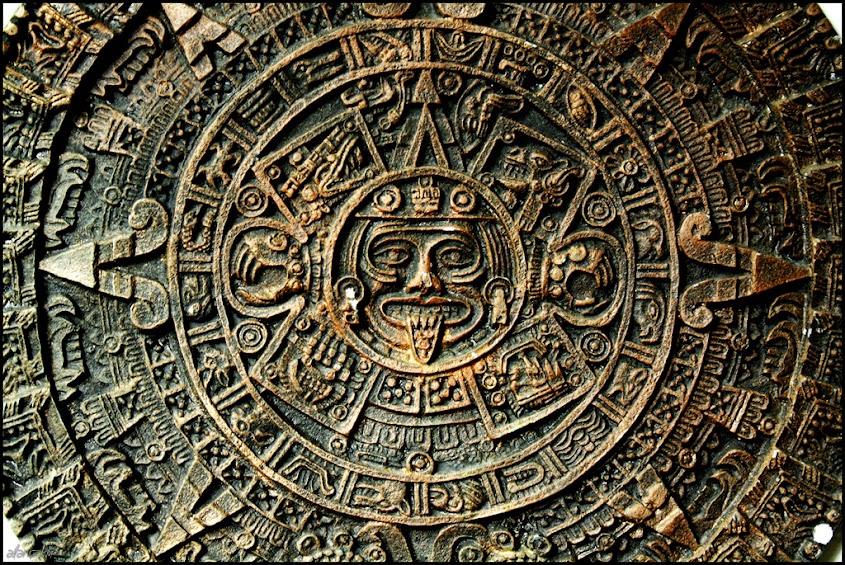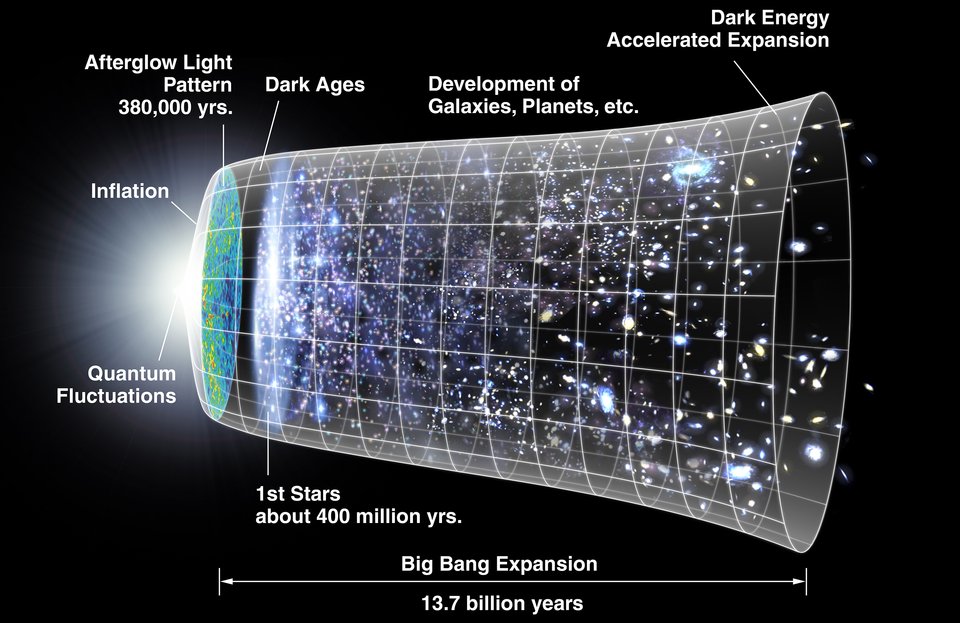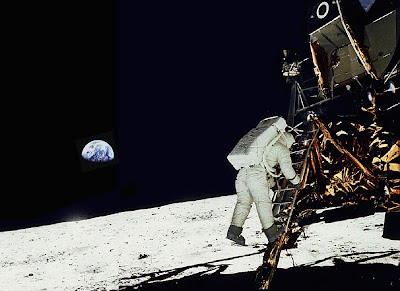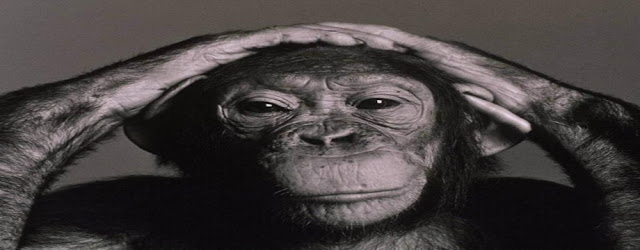December 21, 2012: Mayan Apocalypse
There is a lot of misinformation out there so let's set the record straight before we all start running for the hills. Because after a few ridiculous blockbuster movies and some thought-provoking history channel documentaries we are now a society closely approaching a highly anticipated date. The Mayan calender known as the long count will end its 13th baktun (a period of 144,000 days) which marks the end of the first "Great Cycle" on December 21, 2012. There are questions on the accuracy of this date due to the calendar not accounting for leap years, however the issue of leap year only plays a role in calendars that count years. This calendar simply counts days and is independent of the solar year. The Mayans have just been counting the sunrise and sunset for thousands and thousands of days. Perhaps the misconception has stemmed from use of the word calendar and the Mayan Long Count is more of a day recorder. None the less, it has been recording for something like 1.8 million days since the beginning of the first baktun (August 11, 3113 BCE). And on December 21 of this year the calendar will reach 1,872,000 days, the day recorder will reset, and we will enter into the 14th baktun. The number 13 was considered a holy number by the Mayans who thought there to be 13 levels of heaven, thus the "Great Cycle" comprises of 13 baktuns.
So that is what the Mayan Long count "is," but what did the end of this "Great Cycle" actually mean to the ancient Mayans? To see time as the Mayans did we have to strip away the prejudices and preconceptions of our Western thought. Western man sees time as linear, it begins at some point and ends at another. However, the Mayans saw time as cyclical; what has happened in the past will happen again and time is comprised of looping events. Their culture makes no claims that the end of the world occurs when the "Great Cycle" ends in 2012. Instead, it is the turning over into a new era, a period of change and renewal, which has been speculated as meaning that this world must be destroyed for a new one to begin. This is not necessarily the case. We see similar renewing mentalities in our own culture each January when our calender resets and the gyms are swarmed by new years resolutioners. What we don't see is people worried the world is going to end every year on December 31st. At least not sane people because it is simply the beginning of a new cycle around the sun.
But all ancient Mayan cultural speculative significance aside, why would we trust a ancient civilization to predict the end of the world in the first place? Where does this confidence in their astronomical and temporal predictions come from? To their credit, the Mayans were in fact great astronomers for their time, thought to be obsessed with the happening of the stars. Without a sextant or any modern technology, they were able to predict lunar events within seconds 1,500 years into the future and they also very accurately charted the orbits of planets, such as Mercury, Mars and Venus. The Mayans are also thought to have predicted the alignment of the earth, the sun and the center of the Milky Way galaxy on December 12 of 2012. Some have suggested that this alignment will invoke gravitational effects that could throw the earth off its axis or even out of orbit. And while the gravitational effects of this alignment are mathematically negligible, there is a easier way to prove this theory wrong. The Earth, the Sun, and the center of the galaxy will align on that day, that much the doomsday theorists have gotten right. But what often is overlooked is that this alignment occurs EVERY YEAR on December 21, which is known as the winter solstice. And since we have survived every previous winter solstice, our past suggests we will also survive this one. There are also many other fabricated theories on alignments of planets which will cause the planets to waver off their orbits. These are simply not true, there is no special alignments of planets on 12/21/12, and the only significant sources of gravity on the earth are the Sun and the Moon.
December 21, 2012...Just Another Day
NASA Jet Propulsion Lab
But even more far-fetched are the rumors surrounding the proposed planet, Nibiru. This planet was first introduced by the writer and ancient alien theorist, Zachariah Sitchin. Sitchin stated that the ancient Sumerian culture was aware of a extra planet that follows a very elliptical orbit around the sun. This planet has no real link to the Maya other than their shared interest in astronomy. Nibiru is speculated to be slowly approaching the earth and will either crash into the earth or have intense gravitational effects on it. However, if this planet was approaching it would be very visible at this point and there has also been no effects on any neighboring planets that suggest a unwelcomed visiting planet. Some suggest that the planet has been observed by NASA and other government agencies and they are working hard to keep it under wraps. If this is true then they would have to confiscate every telescope in the world. Honestly I haven't checked in a while, but I'm fairly certain my telescope is still collecting dust in the garage. On top of that, this is based on only one mans interpretation of a ancient text that at the time very few people could read. However, the few that can now read ancient Sumerian assert that Sitchin has twisted the language to fit his own theories and in some cases even gotten translations completely wrong. The errors in his translations were so great that some accused Sitchin of not being able to read ancient Sumerian at all.
Zachariah Sitchin Debunked
Conveniently, most of the astronomical claims of the 2012 doomsday advocates are very testable with a telescope or a astronomy computer program. However, there are a few that would have little more warning than a flash of light immediately before our destruction. A solar flare followed by a coronal mass ejection is a emission of high energy particles from our sun that if aimed directly at earth with a large enough energy could do considerable damage. These ejections happen very frequently and our planet is fairly consistently bombarded with material from the suns solar flares. Luckily for us, the Earth has a magnetic field that shields us from these particles. But if the solar flare was large enough or if the shields were down, we would be showered with radiation and electromagnetic waves that could incinerate all life in a instant. However, there is no indication that the Earth's magnetic field will shut off. Even during periods of magnetic pole inversion (when the north and south poles switch their orientation) it continues to protect us from solar radiation even though our compasses would need re-calibration. Moreover, the sun is currently in a period called a solar minimum, which is a time of low solar activity. During this time it is extremely unlikely that there will be a coronal mass ejection large enough to devastate the earth. Instead a solar flare on this day would simply treat some penguins and Eskimos up north to an aurora borealis or "Northern Lights" that this radiation causes.
The other unpredictable and perhaps most destructive of all celestial events is a supernova. If the world is going to end on 2012, this is how it would happen without any warning. When a star runs out of its hydrogen fuel, gravity compresses the mass of the star and it becomes a fiery ball of immensely unstable plasma. When all this energy is then released the explosion outshines entire galaxies. The high energy particles of this explosion then carry a shock wave demolishing anything in its path and remodeling portions of galaxies. The blasts can carry across thousands of light years and travel nearly the speed of light. Any creature living on a planet in the path of this blast would be bathed in light and then instantaneously treated to a swift death by heavenly fire. This might be the most terrifying of all the solar calamities but fortunately it is also one of the most unlikely and modern astronomy has found no candidate stars close enough to cause us harm. So once again earthlings can rest at ease knowing that if there is a supernova, it is much more likely some other poor fools on a far away planet that will draw the cosmic short straw.
Supernova Simulation
It seems that all evidence points towards the continual existence of the earth as a beacon of life in the universe. Our planet has weathered 4.5 billion years without being wiped away. But then again, it has also seen many extinctions and destructive events. More than 99% of all species of life that have lived on our planet are now extinct and through studying the skies, we have learned that cataclysm in this cosmic shooting galaxy is humbling eventuality. The Earth will most likely survive December 21, 2012 and many December 21's to follow but someday this will all come to an end. This is a fact that no doubt every prophet of doom is counting on. And so it seems man will keep prophesying its end until by sheer inevitability one of us is proven right.
*Thus, if I was to predict the end of the world it would have to be April 13, 2036. The day that the asteroid Apophis, according to NASA, has a one in 45,000 chance of hitting the earth. (see video)
Neil Degrasse Tyson: Death by Giant Meteor
Ancient Maya: Tools of Astronomy (History Chanel Documentary)
by: Brett Vollert
Sources:
http://www.nasa.gov
http://www.nasa.gov
http://www.scientificamerican.com/article.cfm?id=nasa-crushes-2012-mayan-apocalypse-claims
http://www.nasa.gov/topics/earth/features/2012.html#mayans
http://web.archive.org/web/20070602162121/http://members.shaw.ca/mjfinley/calnote.htm
http://web.archive.org/web/20070702005434/http://www.crystalinks.com/precession.html
http://www.nasa.gov/home/hqnews/2009/oct/HQ_09-232_Apophis_Update.html
http://www.nasa.gov/home/hqnews/2009/oct/HQ_09-232_Apophis_Update.html



































































0 comments: